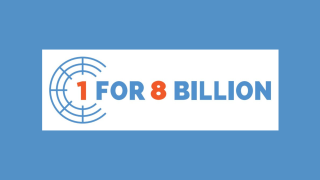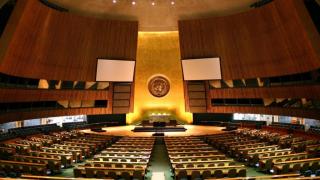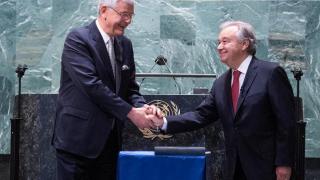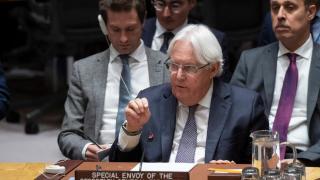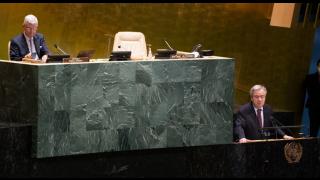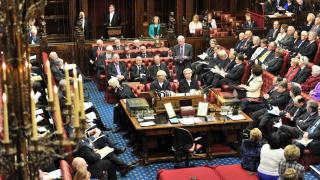
Baroness Warsi, Minister with responsibility for the UN, has responded to calls for a more comprehensive and credible process to be established for the appointment of the next Secretary-General of the United Nations.
In response to an Oral Question from UN APPG member, Lord Judd, Baroness Warsi explained that the UK government did not expect to begin discussions on the matter until 2016.
In a recent briefing, UNA-UK advocated the creation of a search committee in 2014-2015 to set out a timetable, beginning in 2015, in order to facilitate a comprehensive process involving all UN member states, parliaments and NGOs. Given that the second term of current UN Secretary-General Ban Ki-moon ends in December 2016, beginning the selection process earlier that year will not leave sufficient time for a well-organised search for candidates.
The exchange, which took place in the House of Lords on 27 November, also featured various suggestions from Peers to improve the process, including:
- increasing transparency by moving away from a behind-closed-doors process dominated by the permanent members of the Security Council
- allowing for broader regional representation by restricting the position to a longer single-term
- the removal of any pre-emptive regional bias for candidate selection (a suggestion which has now been incorporated into UNA-UK's briefing on this matter)
It was also pointed out that since the establishment of the United Nations in 1945 we have not yet had a female Secretary-General.
The office of the UN Secretary-General
Since its founding, one of the UN’s achievements has been to shape what is now an undisputed norm – that of an international community expected to tackle shared global challenges and obliged to use constructive diplomacy to find compromises. As the UN’s chief officer, the Secretary-General has the opportunity to become, in effect, the voice or conscience of this international community.
For the forthcoming appointment, the Association is keen to focus on proposals that it believes have the most chance of success and of having a tangible impact, given the current political climate for reforms.
In particular, UNA-UK calls for the following:
- Creation of a search committee in 2014-2015 to set out a timetable, beginning in 2015, for a well-organised search for candidates
- A process by which national parliaments and civil society, as well as all UN member states, can have meaningful involvement in the initial search phrase
- Inclusion of women candidates in comparable numbers to men
- Consideration of a longer single term for the next UN Secretary-General in order to relieve the new incumbent from pressures of re-election
- Renewed efforts within the Security Council and General Assembly to avoid the impacts of “regional pre-emption”

